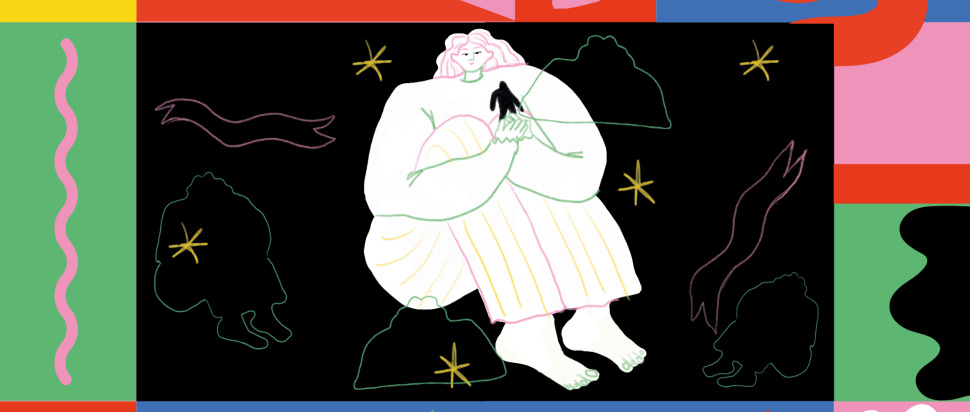Queerantine: a non-binary journey through the pandemic
As we approach two years since the UK’s first lockdown, one writer explores their non-binary identity during the pandemic
As a baby gay who managed to escape the clutches of my biological family and isolate with my flatmate, the beginning of the pandemic was in some ways a blessing in disguise for me. Being from a family who swears they’re not homophobic, but constantly produces bigotry and microaggressions, I learned to ignore and repress my queerness from a young age. Before the pandemic I had never been to a gay bar, and it took me years to recognise that I was pansexual.
During the initial lockdown of March 2020, I had for the first time, time and space to look at myself. I was reading about trauma (as queers do) and reflecting upon my conditioning. For a while, I’d had a subconscious hunch that I wasn’t cis-gender, but I had repressed questioning it. However, when the second lockdown came, I started to experience something weird: when people would refer to me as she or her it made me viscerally uncomfortable. This came out of the blue and I had no 'rational' explanation for why it made me feel this way, it just did.
When I would see she/her pronouns written in chats to refer to me, it felt like the words she/her would grow bigger and consume all other text around. I realized that this issue is probably something cis people don’t experience, so I trialled using they/them pronouns with my closest friends. At first, I didn’t feel comfortable with any pronoun and asked my friends to just refer to me using my name, but as society requires a pronoun for us, I decided to use they/them. To me, ‘they’ is the closest word in the English language that can signify how I feel about my gender.
I’ve realised that gender is fluid and the reason we fear it changing is because we live in a binary society that conditions us to be one stable thing. Once discovering I was non-binary, I was resolute that I was agender, meaning I felt I had no gender at all, but when I started to feel masculine, this scared me. I thought I had 'figured out' who I was and now it was changing again. For me to appreciate and not fear my fluidity is an ongoing challenge.
I’ve also realised that the reason I was able to achieve my gender revelations in the first place was because of the pandemic. Lockdown literally stripped me of the feminine norms I was pressured to abide by as an AFAB (assigned female at birth) person. I stopped wearing bras, makeup, and skirts. As the gender binary is embedded in our social interactions, less social interaction meant less pressure to conform. The traditional idea of queer visibility was turned on its head for me: I became more visible to myself by becoming less visible to others.
For me, the easing of lockdown came with pros and cons. As I bumped into more and more people, I’d get misgendered as they didn’t know I had changed my pronouns. This made me uncomfortable, but I was also uncomfortable ‘revealing’ that I was now a ‘they/them’. Eventually I’d had enough of being misgendered and announced my pronoun change to the world via Instagram story. However, the misgendering didn’t stop. I’ve realised that I need to be, what I call, ‘actively queer’. As the dominant ideology is to assume that people are heterosexual and cis-gender, I need to actively assert that I am non-binary. This is exhausting. I don’t want to compromise myself and let people misgendering me slide, but I just don’t have the energy. And often the conversation doesn’t end with me sharing my pronouns; it evolves into me justifying my existence by recounting the entire history of non-binary people.
Coming out of lockdown allowed me to seek out queer people and spaces; in particular, Glasgow’s newest gay bar Bonjour and legendary club night Shoot Your Shot. These spaces are more than just places to hook up. They are homes we built for ourselves so that queer people can connect, receive identity affirmation, and feel safe in numbers. Constantly closing and reopening these spaces can put into flux peoples’ whole life trajectories.
It is safe to say my queerness has been inextricably tied to the pandemic. The past two years have given me the confidence to dive headfirst into who I truly am and the community I was always meant to be a part of, while also teaching me never to take them for granted. They can be here today and gone tomorrow. Reintegrating into society as a now non-binary person, I am holding my head up high and resisting the cis-het agenda the world is constantly trying to press.
